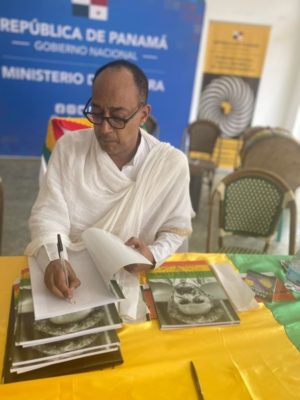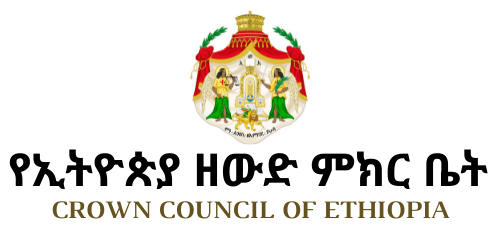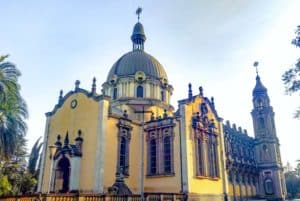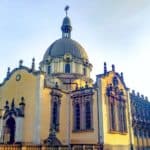Last month, representatives of the Ethiopian Crown Council traveled to Panama for an official visit hosted by the Panamanian government. HIH Prince Ermias Sahle-Selassie, President of the Crown Council, led the delegation, which included his wife HIH Princess Saba Kebede and advisors to the Crown Council representing the Moa Anbessa Institute. The trip, organized by the Tourism Authority of Panama, included meetings and events with Panama’s ministries of Foreign Affairs, Culture, and Tourism. These activities were part of a larger event on the theme of reunion between Africa and the African diaspora. Other guests included Her Majesty Queen Diambi of Congo’s Bakwa Luntu people; His Royal Highness Doctor Rilwan Sulaiman, Emir of Bauchi (Nigeria); and His Royal Highness Adeyeye Enitan Ogunwusi, the ooni of Ife (Nigeria).



On May 19, Prince Ermias gave a speech on the subject of colonialism and “The Unfinished Road to Freedom.” He described Ethiopia’s unique role in African history as the continent’s sole unconquered country and stressed the role that the Ethiopian monarchy played in unifying Ethiopia in the face of European aggression. He suggested that the final step in the liberation process was to “decolonize our minds.” He invited the audience to consider Africa’s wars over ethnicity, ideology, and natural resources, and asked “whether these are really our own values, or whether they have been imposed on us from the outside.” In his concluding remarks, he argued that “Africa’s traditional monarchies are a symbol of Africa’s freedom,” and called upon all Africans to “build a new generation of Africans proud of our traditions.”



On May 24, Prince Ermias joined the leadership of the Rastafarian community of Panama at an event hosted with the Ministry of Culture and the National Secretariat for the Development of Afro-Panamanians. Leading Rasta intellectuals presented on the topic of Rastafarians as a nation without a state. Prince Ermias gave a speech exploring the connections between the Rasta movement, Ethiopia’s church, and Ethiopia’s crown. He recorded the long history of support the African diaspora and the Rasta movement have given the Ethiopian crown, particularly during World War II and the years since the revolution of 1974.
In this speech, Prince Ermias invited the Rasta community to build closer ties to Ethiopia and to the Ethiopian Orthodox Tewahedo Church. “The church gives me a goal and a guide,” he said in his concluding remarks, “the inspiration we can find in the humility, love, and forgiveness of Jesus and his ultimate sacrifice. The crown gives me a burden to carry, the obligation I owe to my cousins, my uncle, my grandfather, and to all of our ancestors, the duty I have to preserve the memory of my family and its role in the history of my culture and my people. So I have both a burden and a guide. The Rastas who have grown ever closer to our church and the Rastas who stand loyal to our crown have carried the same burden with me, following the same guide.”
Coverage of the Crown Council trip to Panama in the press and in social media has been extensive, and Prince Ermias’s speech to the Rasta community received live televised coverage. Ethiopian news site Borkena published a statement about the trip by the Moa Anbessa Institute on June 7. That statement read, in part:
It is our belief that the process of healing and reconciliation for the purposes of promoting and fostering peace and unity on the basis of a common history and identity starts with education, understanding and an open heart to learn and to forgive. Thus, it is only when we understand, forgive past injustices and reconcile with our history that we can begin to chart a path forward built on mutual trust, confidence and partnership beneficial to all people including the environment in which we live.
The Crown Council is grateful to support from the Moa Anbessa Institute and for the presence of its representatives on this trip. The Moa Anbessa statement makes an important point. Education and understanding are crucial for peace and reconciliation, both in Ethiopia specifically and Africa more generally. The Crown Council invites all Ethiopians to join in this journey, and invites everyone to remember the crucial role that Africa’s traditional institutions have to play in building bridges of peace and reconciliation, and in building Africa’s future.








